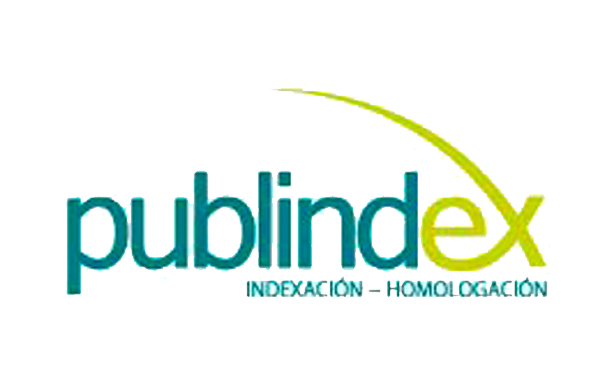Teachers’ perceptions of repetition in the Bachelor in Spanish and Literature at UIS
DOI:
https://doi.org/10.18634/sophiaj.14v.2i.699Keywords:
repetition, teachers’ perception, university, study habits, dropout.Abstract
This article intends to expand the knowledge about repetition in the Bachelor in Spanish and Literature at UIS, a phenomenon not greatly studied in the university, according to bibliographic tracing carried out prior to this research study. Specifically, it studies perceptions of teachers, both full professors and adjunct instructors, of this phenomenon. In order to do this, a series of surveys and interviews were conducted by the end of 2016. The surveys were answered by 20 teachers currently working in the program, with no distinction whatsoever, and the interviews were answered by two teachers, (one full professor and one adjunct instructor), from each of the lines of emphasis of the program: literature, linguistics, foreign language, and didactics and pedagogical processes. From the analysis of such results, and with the theoretical support on repetition, it was found that teachers, in general, thought that although repetition in the program was not very high then, the few students who repeated subjects did it because they did not have a good prior training, they had poor study habits, they skipped classes, or they did not have teaching vocation, among other causes. We concluded, then, how repetition is a multidimensional phenomenon influenced by diverse causes, and this set the precedent for future studies on university repetition, both in this and other programs at UIS.References
Acevedo, D., Torres, J.D., Jiménez, M.J. (2015). Factores Asociados a la Repetición de Cursos y Retraso en la Graduación en Programas de Ingeniería de la Universidad de Cartagena, en Colombia. Formación universitaria, 8 (2), 35-42. Disponible en: enhttp://www.scielo.cl/scielo.php?script=sci_arttext&pid=S071850062015000200006&lng=en&nrm=iso&tlng=en
Corral, Y. (2010). “Diseño de cuestionarios para recolección de datosâ€. En Revista Ciencias de la Educación, segunda etapa, año 2010, Vol.20, núm.36, julio-diciembre, pp. 152-168. Disponible en http://servicio.bc.uc.edu.ve/educacion/revista/n36/art08.pdf
Covarrubias, P. y Piña, M. (2004). La interacción maestro-alumno y su relación con el aprendizaje. Revista Latinoamericana de Estudios Educativos, (34), 1, 47-84. Disponible en http://www.redalyc.org/pdf/270/27034103.pdf
Farías, M. et al. (2007). Propuestas para superar el fracaso escolar. Argentina: Fondo de las Naciones Unidas para la Infancia y Asociación civil Educación para todos. Disponible en http://files.unicef.org/argentina/spanish/PROPUESTA_web.pdf
Garbanzo, G. (2007). Factores asociados al rendimiento académico en estudiantes universitarios, una reflexión desde la calidad de la educación superior pública. Educación, (21) 1, 43-63. Disponible en http://www.redalyc.org/pdf/440/44031103.pdf
González, L. (2005). Estudio sobre la repitencia y deserción en la educación superior chilena. Disponible en http://www.alfaguia.org/alfaguia/files/1318975876Estudio%20sobre%20la%20repitencia%20y%20desercion%20en%20la%20educacion%20superior%20chilena.pdf
Navarro, R. (2003). El rendimiento académico: concepto, investigación y desarrollo. - Revista Electrónica Iberoamericana sobre Calidad, Eficacia y Cambio en educación, (1)2, 1-15. Disponible en: http://www.ice.deusto.es/RINACE/reice/vol1n2/Edel.pdf
Okuda, M. y Gómez, C. (2005). Métodos en investigación cualitativa: triangulación. Revista colombiana de psiquiatría, (1) 34, 118-124. Disponible en http://www.scielo.org.co/pdf/rcp/v34n1/v34n1a08.pdf
Polanco Hernández, A. (2005). La motivación en los estudiantes universitarios. Actualidades Investigativas en Educación. 2(5). 1-13. Disponible es: http://www.redalyc.org/pdf/447/44750219.pdf
Sampieri et al. (2010). Metodología de la investigación (5a ed.). México D.F.: McGraw Hill.
Soria Barreto, K. y Zúñiga Jara, S. (2014). Aspectos Determinantes del Éxito Académico de Estudiantes Universitarios. Formación Universitaria. 7(5) 41-50. Disponible en: http://www.scielo.cl/pdf/formuniv/v7n5/art06.pdf
Torres, J. Acevedo, D. y Gallo, L. (2015). Causas y consecuencias de la deserción y repitencia escolar: una visión general en el contexto Latinoamericano. Cultura Educación y Sociedad 6(2), 157-187. Disponible en https://www.researchgate.net/profile/Jose_Torres_Gonzalez/publication/299535370_Causas_y_consecuencias_de_la_desercion_y_repitencia_escolar_una_vision_general_en_el_contexto_latinoamericano/links/56fe020008ae650a64f55a44.pdf?origin=publication_list
Vargas Jiménez, I. (2012). “La entrevista en la investigación cualitativa: nuevas tendencias y retosâ€. En Revista calidad en la educación superior, Vol. 3, núm. 1, mayo 2012, pp. 119-139. Disponible en http://biblioteca.icap.ac.cr/BLIVI/COLECCION_UNPAN/BOL_DICIEMBRE_2013_69/UNED/2012/investigacion_cualitativa.pdf
Vélez, A. y Roa, C. (2005). Factores asociados al rendimiento académico en estudiantes de medicina. Educación médica, (2) 8, 74-82. Disponible en http://scielo.isciii.es/pdf/edu/v8n2/original1.pdf
Villalonga Penna, M. M. (2011). Aproximaciones teóricas sobre el fenómeno de la repitencia escolar y sus implicancias en las relaciones áulicas y en el quehacer psicológico. Revista Electrónica de Psicología Iztacala, 14 (1). Pp. 46-64. Disponible en: http://www.revistas.unam.mx/index.php/repi/article/view/24790
Zarate Rueda, R. y Mantilla Pinilla, E. (2014). La deserción estudiantil UIS, una mirada desde la responsabilidad social universitaria. Zona Próxima. (21). Pp. 121-134. Disponible en: http://www.redalyc.org/articulo.oa?id=85332835010
Downloads
Published
Issue
Section
License
Creative Commosn Licence 4.0








